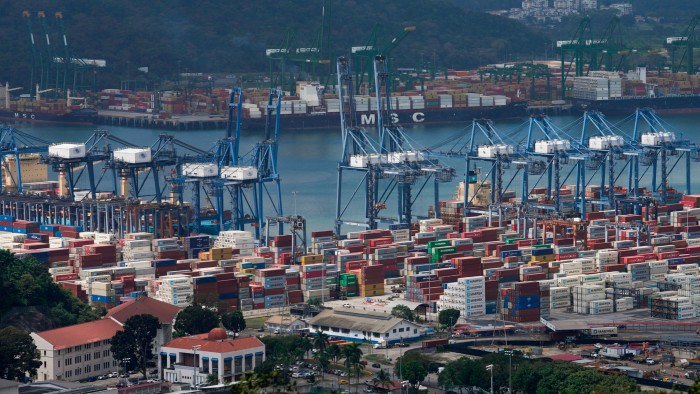Unlock the White House Watch newsletter for free
Your guide to what the 2024 US election means for Washington and the world
Settling the future of one of the world’s most strategically important waterways took almost four decades of US diplomacy in the last century. Putting it up for grabs again took President Donald Trump a few short weeks.
Trump’s bombast on the Panama Canal ranged from claims that Chinese soldiers were illegally operating the waterway (false) to vowing that the US could invade to take back control of the facility it once built (alarming but improbable). Like the US president’s statements on trade, or on Greenland, they appeared intended to frighten the other side into negotiating.
Yet beneath the overblown rhetoric on Panama lay a kernel of truth: a once-close US ally controlling a waterway through which 40 per cent of US container traffic passes had drifted increasingly into China’s orbit.
Over the past decade, Beijing prised Panama away from diplomatic allegiance to Taiwan, signed it up to the Belt and Road infrastructure initiative, provided training for Panamanian security forces and won showpiece infrastructure contracts. A Hong Kong company, CK Hutchison, operates ports at either end of the canal — something the Trump administration believes is a potential security threat.
Governing a tiny nation of 4.5mn people with no army and a long history of US intervention, Panama’s pro-US president José Raúl Mulino had little choice but to swallow his indignation and negotiate with Washington.
An agreement last week with visiting US defence secretary Pete Hegseth foresees closer military co-operation, including US troops deploying to Panamanian bases. A mechanism is being worked out to reimburse the US for canal tolls charged to its warships. Panama has said it will exit Belt and Road.
At the same time, Panama published a report from its auditors that conveniently uncovered alleged wrongdoing by Hutchison, opening the way for its port concessions to be cancelled. They say the Hong Kong firm failed to secure required approvals for a contract extension and owes millions of dollars in dues (Hutchison denies the allegations). The spat could complicate a $19bn global deal to sell Hutchison’s ports to a consortium led by BlackRock of the US — a move which angered Beijing after Trump touted it as reclaiming the canal.
Mulino deserves credit for deft diplomacy, publicly insisting on the need to respect Panamanian sovereignty while privately negotiating changes designed to allay Trump’s concerns. At this point, though, there is a risk that Washington overplays its hand in a country where it has a long and difficult history and undermines the president from whom it has wrung concessions.
Negotiations on the future of the Panama Canal began in 1964 after US troops shot dead about 22 Panamanians during protests, and led to the canal being gradually transferred to full Panamanian control by 2000. That process unfolded despite a US military invasion in 1989, which cost several hundred Panamanian lives. As secretary of state, Henry Kissinger advised President Gerald Ford in the 1970s that continued US control of the canal “looks like pure colonialism” — a warning which still resonates.
Bullying small countries can have large unintended consequences. Trump’s aggressive tactics have rattled a historically pro-American nation. Having waved a big stick to secure the concessions it wanted, the US ought to now offer some carrots to Panama, such as large-scale investment in infrastructure or increased trade. Otherwise it risks a backlash, which could undermine a thriving entrepot of capitalism and push it towards anti-American socialism. Cuba, Nicaragua and Venezuela offer striking examples of what can go wrong.
